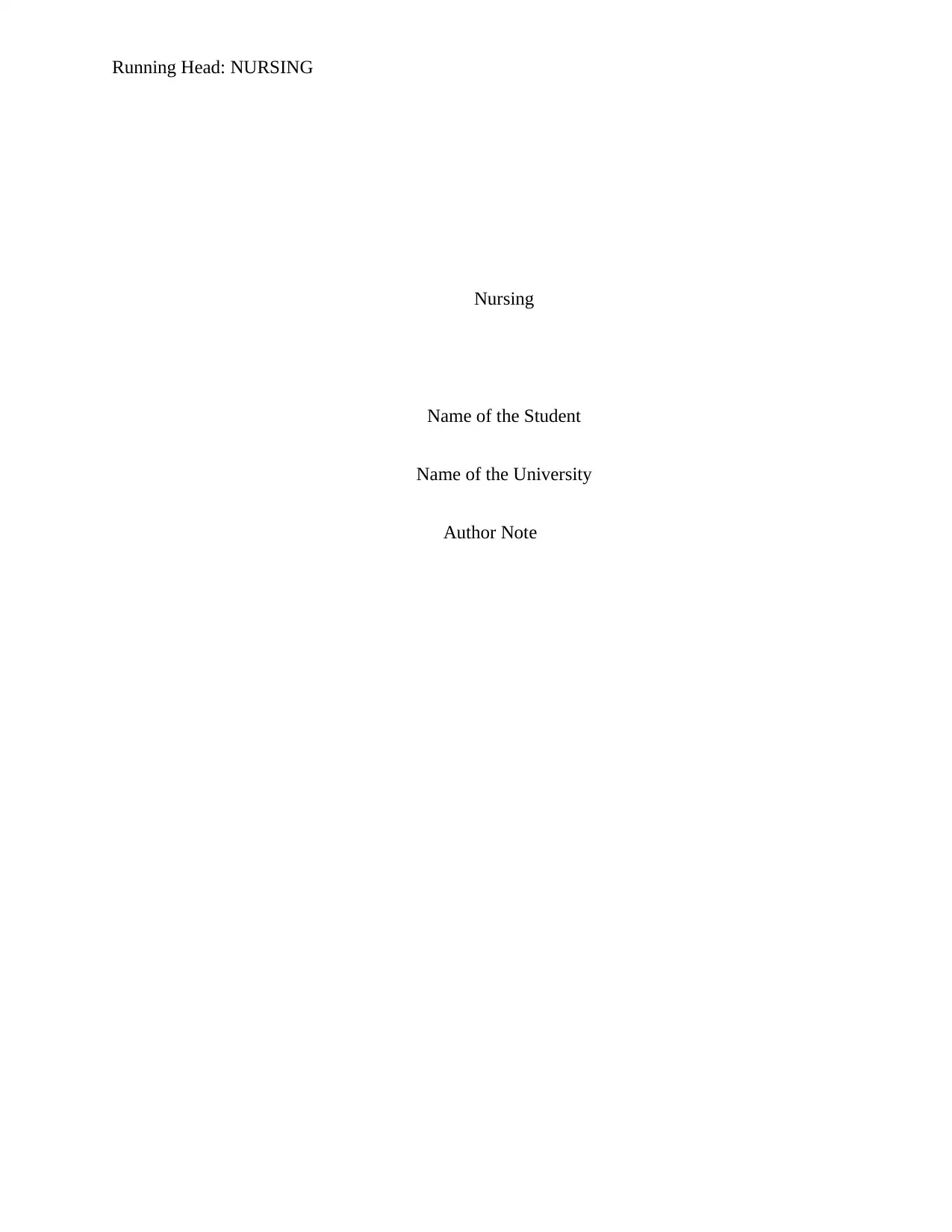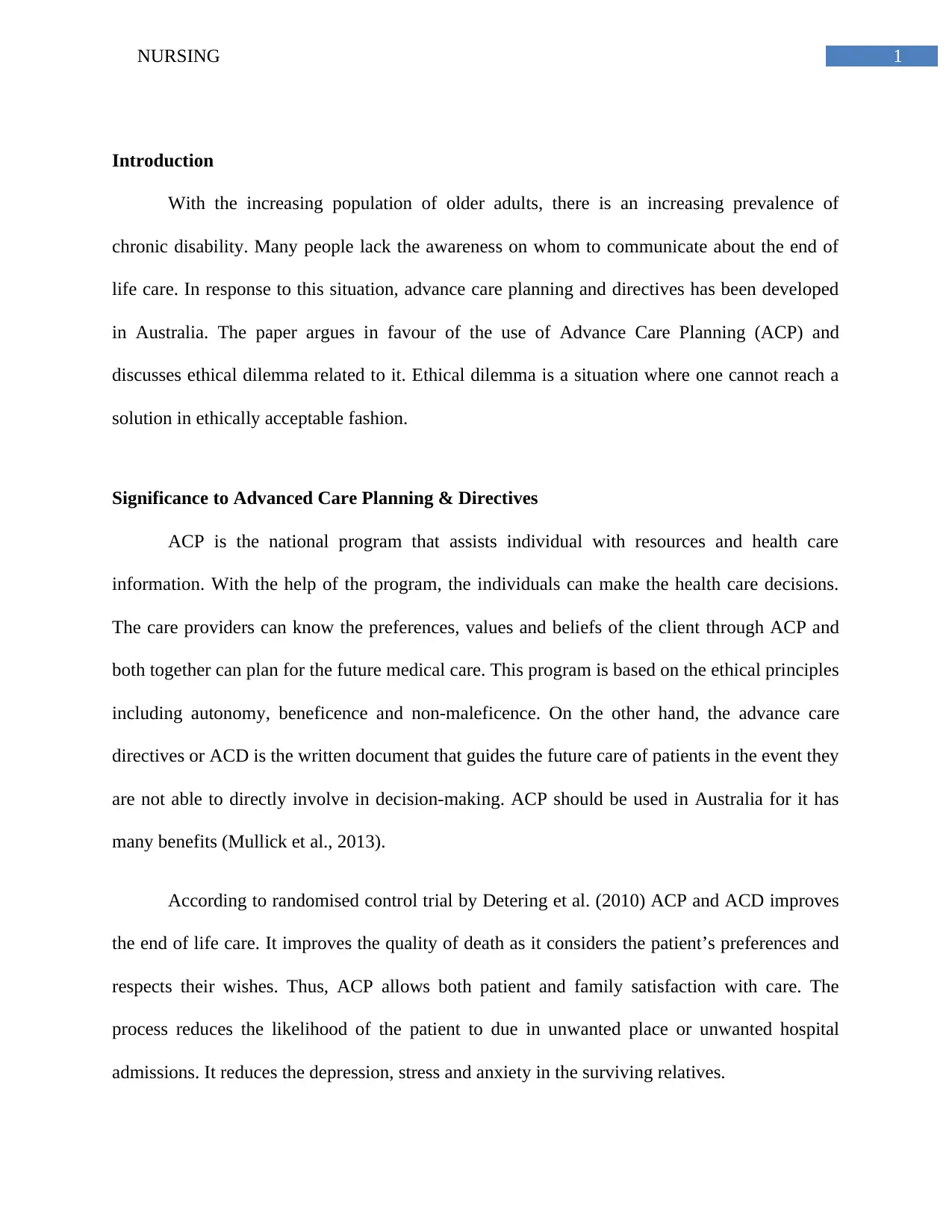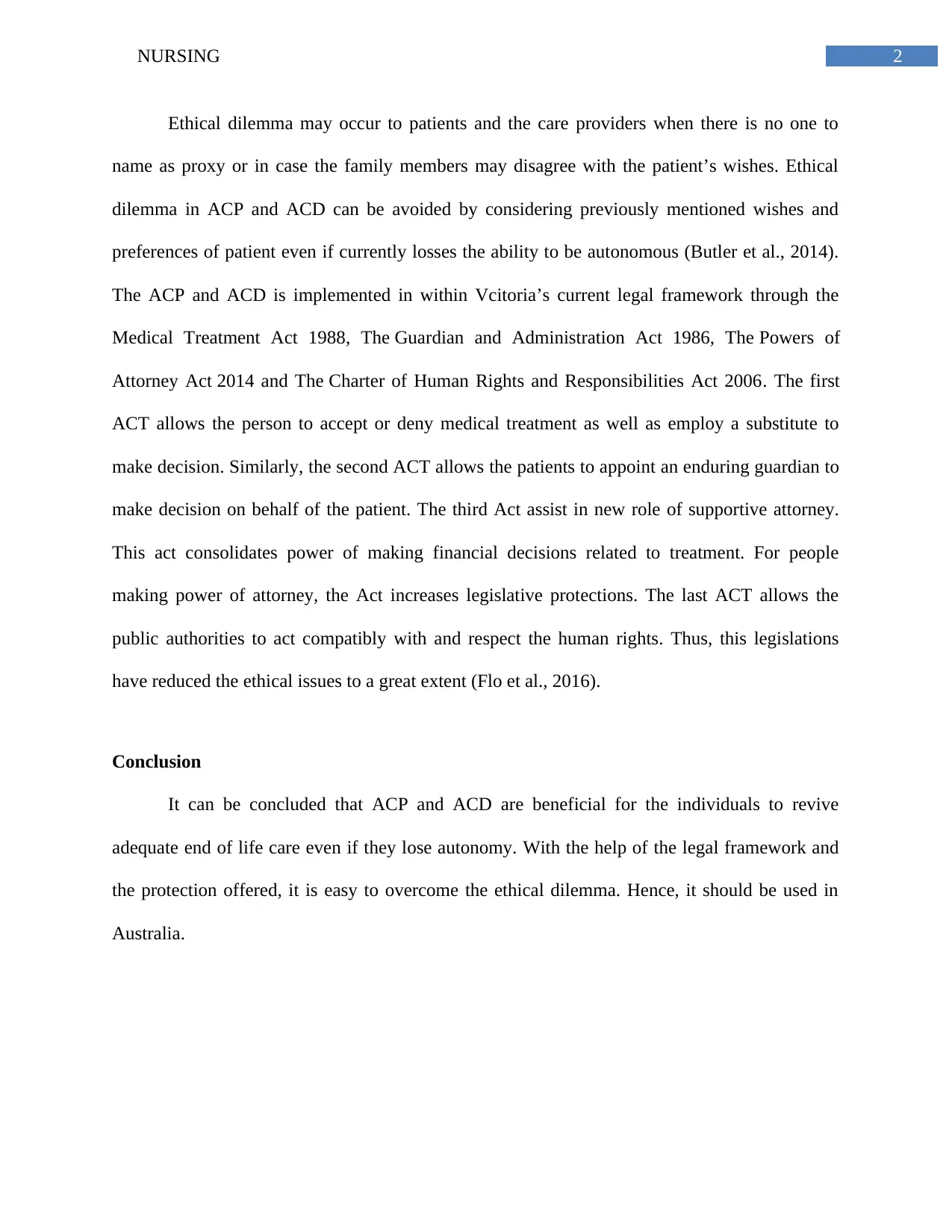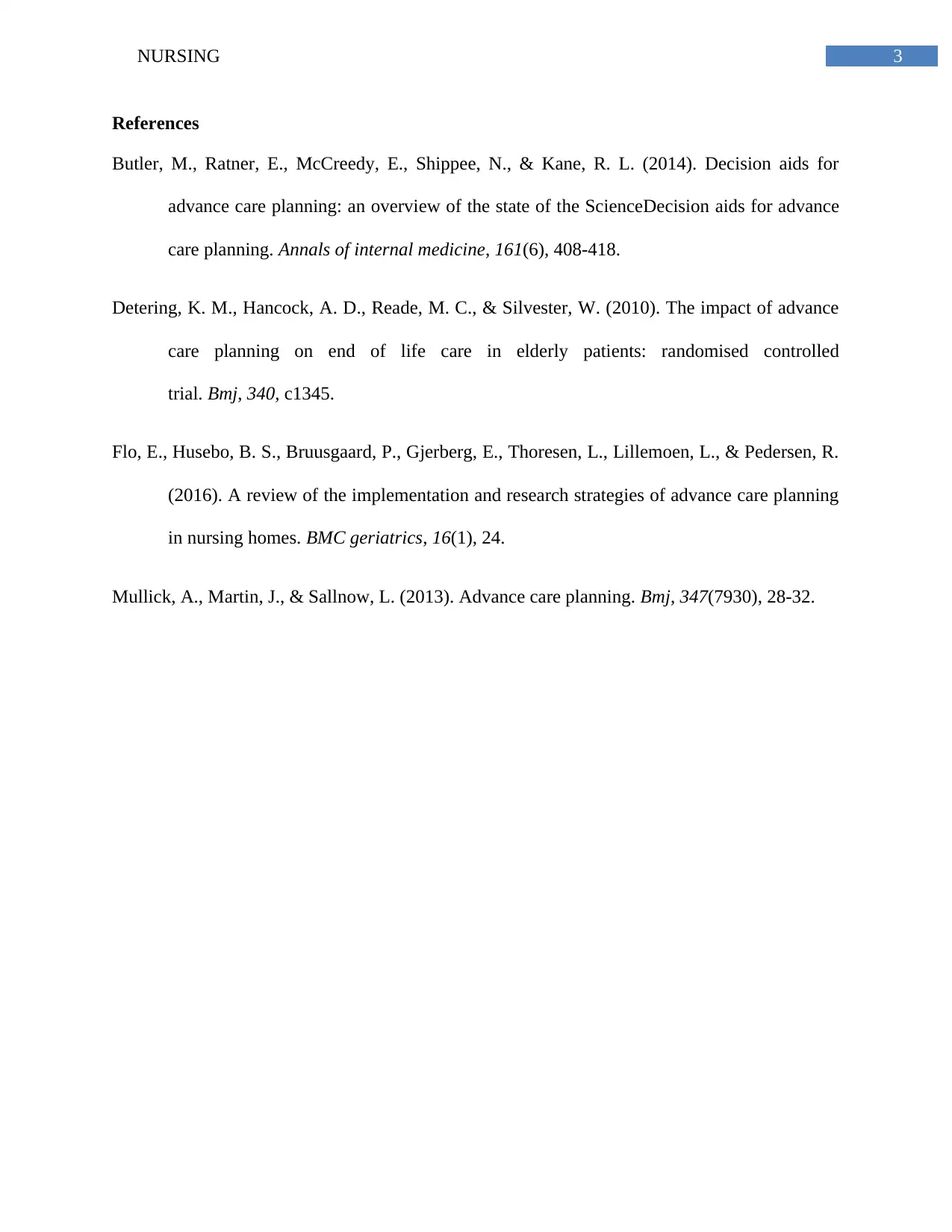University Nursing Essay: Advance Care Planning and Ethical Issues
VerifiedAdded on 2020/02/24
|4
|811
|1130
Essay
AI Summary
This nursing essay examines the use of Advance Care Planning (ACP) and Advance Care Directives (ACD) in Australia, arguing in favor of their implementation to improve end-of-life care. It discusses the significance of ACP, which assists individuals with healthcare information and decision-making, aligning with ethical principles like autonomy and beneficence. The essay highlights the benefits of ACP and ACD, including improved quality of death, patient and family satisfaction, and reduced unwanted hospital admissions, while acknowledging potential ethical dilemmas. It also explores how the Medical Treatment Act 1988, The Guardian and Administration Act 1986, The Powers of Attorney Act 2014 and The Charter of Human Rights and Responsibilities Act 2006 within Victoria's legal framework help to mitigate these issues, ensuring patient wishes are respected even when autonomy is lost. The conclusion emphasizes the benefits of ACP and ACD in providing adequate end-of-life care and overcoming ethical dilemmas, advocating for their continued use in Australia.
1 out of 4











![[object Object]](/_next/static/media/star-bottom.7253800d.svg)